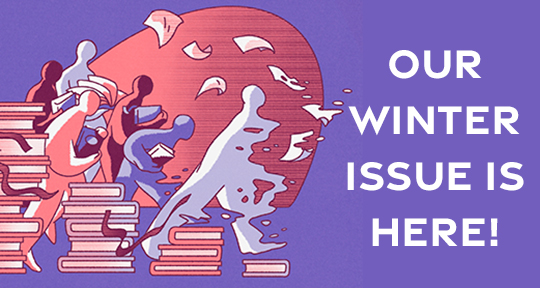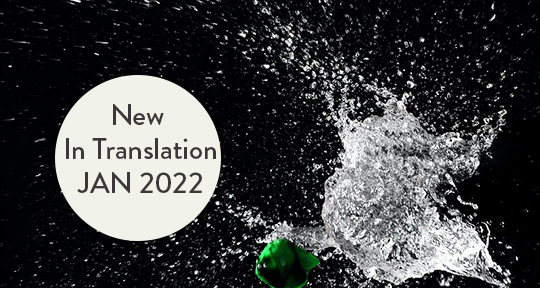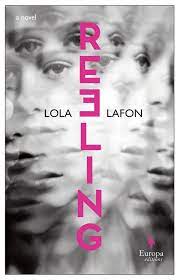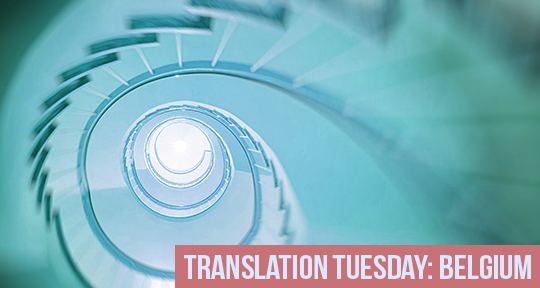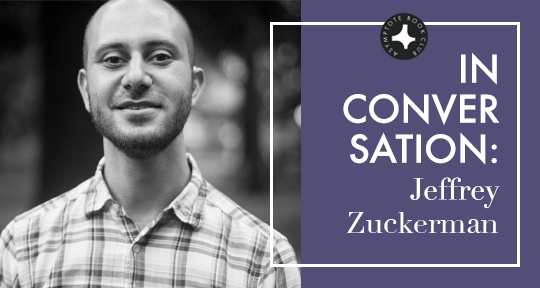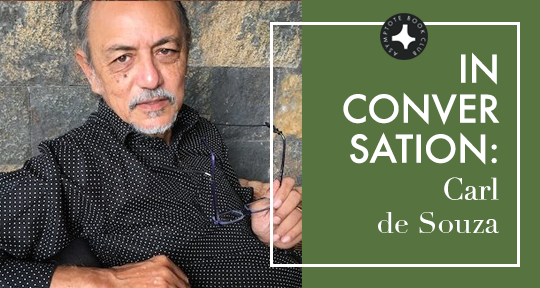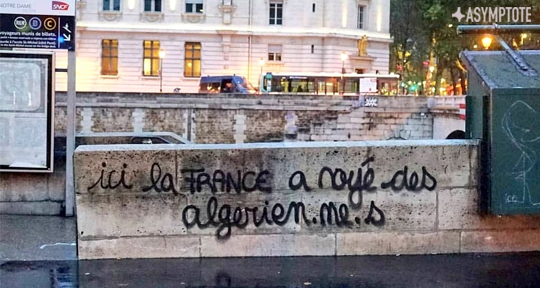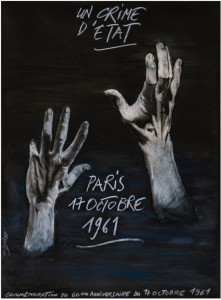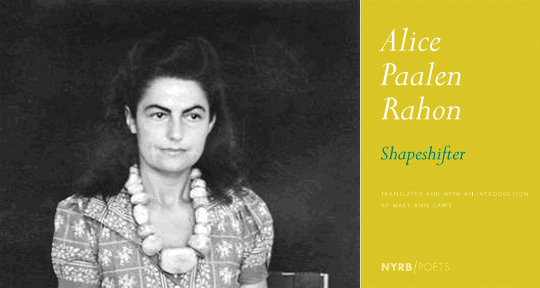Shout it from the rooftops: Asymptote turns eleven today! We celebrate our 43rd issue with new work from a record 43 countries in our most bountiful edition yet. Highlights include an exclusive interview with acclaimed poet George Szirtes and a Flemish Literature Special Feature organized in partnership with Flanders Literature, showcasing new translations of International Booker Prize nominee Stefan Hertmans, YA superstar author Bart Moeyaert, and up-and-coming raconteur Rachida Lamrabet.
Our Winter 2022 edition not only puts the “world” in “world literature,” it also interrogates the meaning of it. Take the case of Aaron Zeitlin, the Yiddish poet who was stranded overseas when the Nazis invaded his native Poland and killed his entire family. Written in a language “half of whose speakers had been wiped off the face of the earth,” Zeitlin’s grief-stricken poetry appears to be without a world, and therefore can not, as Yeshua G.B. Tolle argues beautifully, be classified as world literature. In her fiction, Jasna Jasna Žmak imagines a similar apocalyptic fate for the speakers of her language in a thought experiment inspired by Barthes, only to emerge with a newfound appreciation for all the words in her language, including the ones she hates. After all, words can summon entire civilizations—even the bygone ones—as they do in Gesualdo Bufalino’s thrilling list of extinct professions (the lady with the bloodsuckers, among them!). “The disappearing world” is also the subject of visual artist—and the first public figure in Spain to openly discuss his HIV status—Pepe Espaliú’s devastating poems evoking his final days under a sky dense like “the mouth of black clouds.” By contrast, bilingual Kazakh poet Anuar Duisenbinov’s exuberant “overloved, overdosed” narrator “float[s] in exultation” through his “luminous and windy capital,” contemplating “the ability of speech to sprout.” As it turns out, speech does sprout everywhere all over the world. Alongside Duisenbinov, we’re thrilled to debut in English Emil-Iulian Sude, one of the first award-winning writers of Roma ethnicity in Romania; Rachid Djaïdani, a French filmmaker whose 1999 bestselling novel and classic of banlieue writing is only now available, thanks to frequent contributor Matt Reeck; and Kim Su-on, a young Korean writer whose dazzlingly atmospheric story is a masterclass in worldbuilding.
The tagline of this eleventh anniversary edition is “The Worlds We Live In”—pointedly not “The World We Live In”—meant to express the simultaneity of all our myriad existences, such as those inhabited by George Szirtes, who discusses his new collection of poems, the state of Hungarian literature, and translation in the age of Brexit. Also working from the liminal space of migration is Jamaican-born artist Cosmo Whyte, who explains why Barbados’s recent renouncement of the Queen is only the first of many necessary steps in healing (since, according to him, there is no “post” to colonialism). Neske Beks also performs a necessary act toward healing on behalf of Black women everywhere by centering the story of Ann Lowe, the Black designer responsible for Jackie Kennedy’s bridal gown in 1953, in her retelling of haute couture’s history. Pair her 2020 essay sparked by an exhibition with Charlotte Van den Broeck’s nonfiction excavating the curious real-life case of the Princess Caraboo of Javasu aka Mary Wilcocks—who might very well be the first yellowface captured in any artistic medium (an 1817 oil painting that shared a moment with Van den Broeck at the Bristol Museum & Art Gallery in her last gallery visit before the pandemic). All of this is illustrated in talented Singaporean guest artist Yeow Su Xian (Shu)’s irresistible palette and forms—I dare you to say hers isn’t the most fun cover we’ve had in a while!
For more Asymptote goodness, subscribe to our newsletter or Book Club, follow us on Facebook, Twitter, and our two Instagram accounts, and consider submitting work (Swedish-English translators take note: our recently announced call for submissions to a paid Swedish literature feature ends Mar 1). And of course, we’d be delighted if you’d like to come on board as a team member (apply by Feb 1) or, to honor our eleven full years in world literature perhaps, as one of our generous sustaining members! As always, thank you for your readership and support.
BECOME A SUSTAINING MEMBER TODAY
—Lee Yew Leong, Editor-in-Chief

